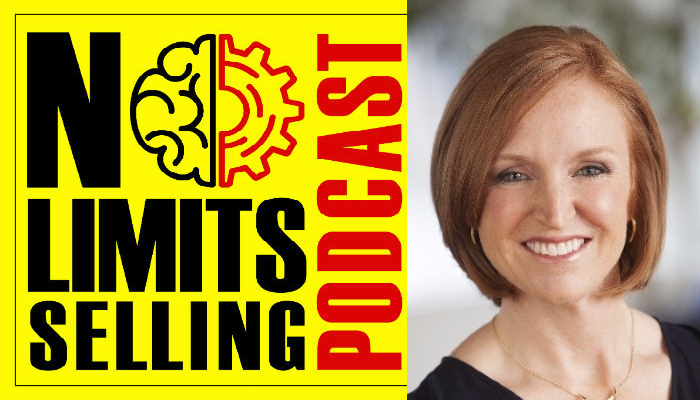How To Boost Profitability by “Pricing Geek” Casey Brown
On Episode 168 of The No Limits Selling Podcast, we have Casey Brown. Casey is the President of Boost Pricing, a firm that helps companies discover their true pricing power and be paid well for the excellence they provide. For over two decades, she has formulated and executed pricing strategies, pioneered innovative pricing content, and coached and trained teams to drive culture change and dramatic, sustainable results.
In this episode, Casey shares with us tips on how to boost profitability.
During her career with Boost Profits LLC, Casey has established a stellar reputation as both a pricing geek with a passion to see people paid well for their excellence and as a professional speaker, presenting at conferences, trade associations, and networking groups around the world.
Her 2015 TEDx talk has accumulated over 4M views to date. As President of Boost Profits, she leads a group of consultants who help companies sell more, with higher prices to increase profit.

Contact Casey:
[EDITOR’S NOTE: This podcast is sponsored by No Limits Selling. It is a fun, fast-paced podcast that delivers hard-fought business advice that you can implement today to improve your sales and performance]
Interested In Our Real Estate Coaching Services? Explore Our Website: Link
Feeling Not Well Today? You Can Use Our Mindset Boosters App To amp Up Your Mood: Link
Find us on Social Media:
LinkedIn | Facebook community | Instagram
Like what do you listen to? Subscribe to our podcast!
Ready to become fearless? We can help you become fearless in 60 days so you accomplish more in your career Schedule A 15 min Call with Umar
Summary
Introduction and Background of Casey Brown
The podcast begins by introducing Casey Brown, the President of Boost Pricing. Casey's firm is dedicated to helping companies discover their true pricing power and ensuring they are well-compensated for the excellence they provide. She has a rich background in pricing, having worked with a diverse range of companies from Fortune 500s to startups. Her mission is to help these companies understand the value they provide and how to price their products or services to boost profitability.
The Importance of Pricing
The podcast emphasizes the importance of pricing in business. Casey explains that pricing is not just about numbers; it's about understanding the value that a company provides to its customers. She believes that many companies undervalue their products or services, leading to lower prices and reduced profits. By understanding the true value of what they offer, companies can set prices that reflect this value and boost profitability.
The Pricing Journey
Casey discusses the journey that companies need to take to discover their true pricing power. The journey to boost profitability involves understanding the customer's perspective, their willingness to pay, and the value they perceive in the product or service. It also involves a process of testing and learning, where companies experiment with different pricing strategies and learn from the results.
Case Studies and Examples
Throughout the podcast, Casey shares several case studies and examples to illustrate her points. These examples highlight how companies have successfully implemented their pricing strategies and how it has helped them boost profitability. They serve as practical examples of how understanding value and customer willingness to pay can lead to more effective pricing strategies.
Conclusion
In this insightful podcast, Casey Brown, President of Boost Pricing, underscores the critical role of pricing in business success. She emphasizes that pricing isn't merely a numerical exercise, but a reflection of the value a company provides to its customers. Through her work with a diverse range of companies, she has observed that many undervalue their offerings, leading to suboptimal pricing and diminished profits. Casey advocates for a customer-centric approach to pricing, where understanding the customer's perspective, perceived value, and willingness to pay are central.
She illustrates her points with practical case studies, demonstrating how effective pricing strategies can significantly boost profitability. The podcast concludes with a call to action for businesses to embark on their pricing journey, viewing it as a continuous process of learning and adaptation. Casey's final message is a powerful one: pricing is not just about revenue generation, but a means to acknowledge and communicate the value a company delivers to its customers.
Questions & Answers
Who is Casey Brown?
What is the main focus of Casey Brown's podcast?
Why is pricing important in business according to Casey Brown?
What is the 'pricing journey' that Casey Brown talks about?
What are some examples of successful pricing strategies that Casey Brown shares in the podcast?
What is Casey Brown's final message in the podcast?
Don’t miss this opportunity to transform your real estate career with one-on-one coaching. As an experienced real estate coach, I, Umar Hameed, am dedicated to helping you unlock your full potential and achieve your real estate goals. To learn more about who am I and my clients ↓
If you’re ready to take the next step, book an appointment with me today and begin your journey toward success in the real estate industry.
